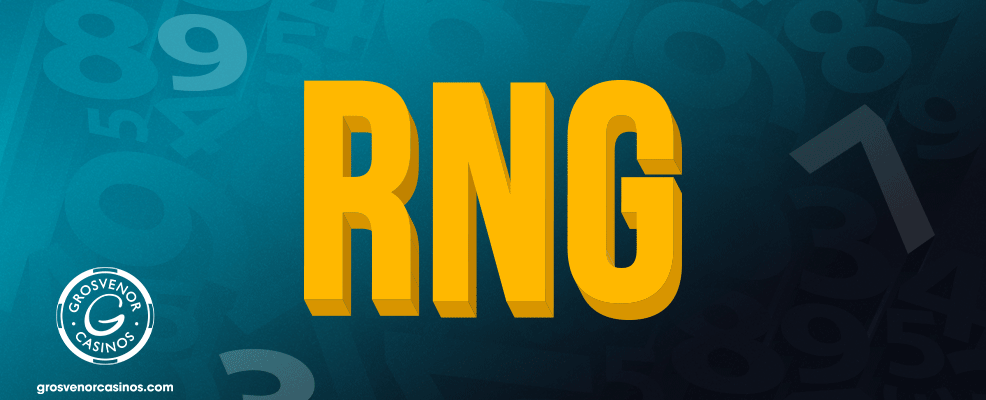We’re back with our series of Fascination of the Game blogs, so whether you’re partial to a dash of trivia or have an acquired taste for brushing up on classic casino games, you’re in the right zone. In this post we’ll be looking into Random Number Generation (RNG), the way it works, and why it matters so much when it comes to gambling.
Ready to brush up on your RNG knowledge? Let’s jump in.
RNG: An Overview
Random Number Generation (RNG), in a nutshell, is a process in which a device generates a sequence of numbers or symbols that cannot be predicted better than by random chance.
RNGs are the life force of online casinos like Grosvenor Casinos. In the interest of fairness, they decide just about everything – from which symbols land on the reels in a slot game, to which number a ball will land on after every spin of a roulette wheel.
There are two types of Random Number Generators you’ll want to be in the know about: a hardware random number generator (HRNG) and a Pseudorandom Number Generator (PRNG).
What is HRNG?
A Hardware Random Number Generator (HRNG) or True Random Number Generator (TRNG) is a material device which generates random numbers as a result of a physical process. In other words, it’s not derived from an algorithm.
The HRNG has many forms, some of which are more complex than others. In land-based casinos, this may take the form of a chip that’s placed into a physical slot machine. This then generates a series of random numbers that are often influenced by changing atmospheric phenomena – for instance, statistically random ‘noise’ signals – like thermal noise!
…Confused yet? We’re not surprised! Given its reliance on dense mathematics, RNG is as far from a fluffy subject as you can get.
OK, we’ll level with you: a more straightforward example of a longstanding HRNG is dice. When a cubical dice is rolled, the chance of which number from 1-6 comes up is statistically random. Other HRNGs that have been used in gambling since ancient times include coin flipping and shuffling playing cards. A little easier to get your head round, wouldn’t you say?
But don’t just take our word for it, head to your local Grosvenor Casino and see HRNGs in action for yourself.
What does PRNG stand for?
A Pseudorandom Number Generator (PRNG), also known as a Deterministic Random Bit Generator (DRBG), is an algorithm for generating a sequence of numbers whose properties replicate the properties of sequences of random numbers.
This is the kind of RNG that’s used in online casinos – including our own! In this case, the RNG system is a program code that creates a PRNG, which is then interlinked with the software of the casino.
PRNGs are funny things. Despite the fact that their sole purpose is to generate randomness, a PRNG-generated sequence cannot be truly random. Computers, after all, are deterministic machines, and the M25 algorithm used in an RNG system ultimately follows the same pattern. Its sequence is determined by something known as the ‘seed’ of the PRNG (which is essentially its initial value).
These means that mathematically speaking, the so-called random sequences produced by PRNGs are technically not random at all, but pre-determined or ‘pseudo’.
Surely, we hear you ask, someone can work it out then? Not so much. The M25 algorithm is comprised of mathematical formulas and equations which are so incredibly complex that they prevent the prospect of predictability altogether.
So, while the sequence isn’t random, it’s so difficult to identify that the consensus on PRNG randomness is ‘close enough’!
RNG and Online Casinos
Back to the easy stuff: why does all this matter? In short, without an RNG system, gambling wouldn’t be fair game! The randomness ensures that predictable gaming outcomes are prevented and thus make online casinos like Grosvenor unbiased and reliable.
The software of PRNGs used by online casinos cannot be rigged or changed, as its regulated under a licence agreement by a governing commission. They are tested routinely to ensure they can produce a sequence of 300 million numbers that result in fairness for online gambling.
Here’s a fun fact to wrap up with: Random Number Generators never stop producing winning combinations. Even when no one is playing a game, the RNG will still knock out winning patterns every fraction of a second.
Ready to test out some RNG games? Check out these classic casino Table Games that all rely on the robust and invaluable practices of Random Number Generators.

Leave a Reply